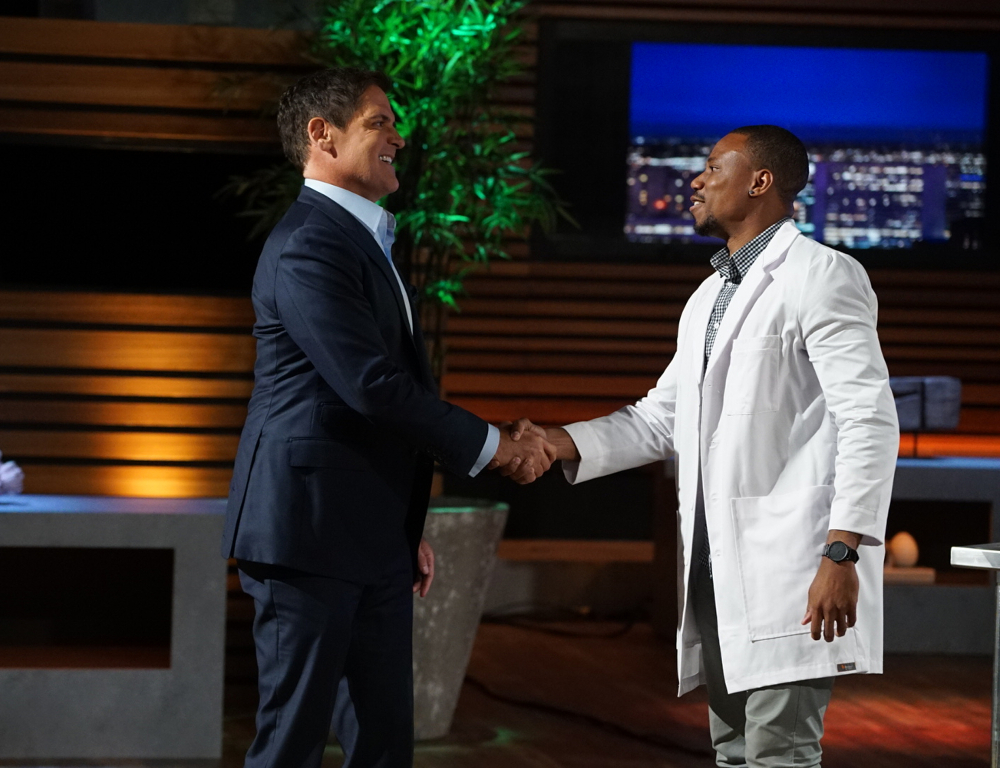Penn State College of Medicine MD/PhD student gets ‘Shark Tank' investment

It's been a whirlwind of a year for Olivier Noel, a sixth-year student in Penn State College of Medicine's MD/PhD Medical Scientist Training Program. As recently as February, he was still processing his recent recognition on Forbes' prestigious “30 Under 30” for his company, DNAsimple — a startup that matches people with medical researchers.
“It really hasn't hit me yet,” Oliver said earlier this year of being named to the Forbes list. “It's extremely humbling, to be honest. All the hard work you put in is being recognized.”
Now, literally overnight, Noel has risen to national fame after appearing on ABC's hit reality show “Shark Tank” on Sunday, where entrepreneurs pitch their business concepts to a panel of influential investors. (Watch Noel's episode here.)
After completing his 90-second pitch of DNAsimple — Noel asked the sharks for a $100,000 investment in exchange for a 12.5-percent stake in the company — he received two initial offers from business mogul Mark Cuban and guest panelist Richard Branson, founder of Virgin Group. Ultimately, Noel sealed the deal with Cuban, receiving a $200,000 investment for a 15-percent stake.
“It's hard to describe [the feeling],” recalled Noel, who had to keep the investment quiet for several months until the show aired. “It was just awesome.”
In less than a year, DNAsimple's database has grown from about 5,000 donors to over 20,000 after a funding round with Linus Ventures worth $250,000. The additional capital from Cuban will help Noel and his team — now six employees strong — continue to scale.
“Our goal is to hit 100,000 [donors] or more by the next quarter and position ourselves to help more in the next year,” Noel added.
While Noel, now 29, is considered one of the country's brightest young entrepreneurs, it wasn't always the goal. But his passion for creating new ideas that have an impact on people led him down the entrepreneurial path.
“I saw an opportunity,” he said. “You can do more with your science background than become a professor. It was kind of exciting for me.”
Dr. James Broach, chair of Biochemistry and Molecular Biology at Penn State College of Medicine, has followed Noel's research over the last several years as one of his mentors and part of Noel's thesis committee. Broach recognized Noel's natural entrepreneurial spirit and, coupled with the College of Medicine's MD/PhD program, watched Noel's startup take off.
“There's nothing in our PhD program per se that directs you into business, but students are encouraged to pursue careers distinct from going into academic research,” Broach explained. “The goal in our PhD program is to create people who are capable of solving problems, defining what the issues are, with the ability to think them through. That's applicable in the standard research lab, but it's also applicable to other career options.”
Broach sees huge potential for DNAsimple to solve the issue of having large enough patient populations to get “statistically meaningful” results.
“I'm following [DNAsimple] with bated breath,” Broach said. “If DNAsimple is successful in its approach, it could significantly facilitate new discoveries in both causes of diseases and opportunities for developing novel therapeutics.”
If you're having trouble accessing this content, or would like it in another format, please email Penn State Health Marketing & Communications.
